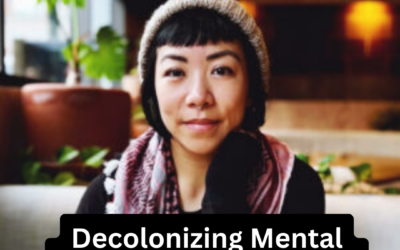Podcast: Play in new window | Download (Duration: 37:25 — 25.9MB)
Subscribe: Apple Podcasts | Spotify | Amazon Music
Speakably Sexy – Communicating to Make Sex Hotter and Relationships More Alive
What makes the ins and outs of sexuality so hard to talk about?
It turns out, if couples do talk about sex, the conversation is often mostly about frequency. However, what is missing are the zillions of other thoughts and feelings we have about intimacy (or lack thereof), desire (or lack thereof), fantasies (or lack thereof), pleasure (or lack thereof) and, oh yeah, the mechanics of sex as well.
But don’t sweat it, in this episode Therapist Uncensored co-host Dr. Ann Kelley joins guest Dr. Susan Ansorge to talk about talking about sex.
Learn to overcome the difficulties of opening up to yourself and your sexual partner about these very personal and understandably anxiety-filled conversations.
Dr. Susan Ansorge is a practicing psychologist in Austin, TX. Her interest, training and experience in working with sexual issues began during her tenure as a staff psychologist at the UT Counseling and Mental Health Center, and has continued through her 17 years of private practice. Dr. Ansorge was also member of the Austin Women’s Psychotherapy Project, bringing leaders in the field of gender-aware Psychotherapy to the Austin area, as well as presenting locally and nationally on topics in the areas of gender and sexuality as they relate to psychotherapy. Her written work has appeared in the National Center for PTSD Quarterly.
0:00-10:00
Introduction
General difficulties in discussing sex with your partner
Learning to talk about talking about sex
Desire discrepancy and more complicated questions/conversations about sex
The difficulty in beginning a discussion that you are afraid might be hurtful to your partner
10:00-20:00
How best to get dialogue going with your partner about desires and likes/dislikes
When and where is the right place and time for the right conversation about your shared sex life?
How sex is initiated and finding a compatible middle ground
Desires and fantasies can often be considered taboo, but fantasies can also be a gold mine of communication
Difference in fantasies between men and women, women of different ages
20:00-30:00
The element of novelty in women’s fantasies and element of pleasing their partner in men’s fantasies
Part of women’s fantasies is being desired
Caretaking and nurturing is counterintuitive to sexual narcissism
Avoiding arousal/desire censorship
30:00-40:00
How to bring up talking about sex to one’s partner and using available resources
Appreciating one’s partners perspective just like in any communication setting
Wrap up and outro
Resources
Mating in Captivity: Unlocking Erotic Intelligence by Esther Perel, former guest on our show.
The Erotic Mind: Unlocking the Inner Sources of Passion and Fulfillment by Jack Morin
Tired Woman’s Guide to Passionate Sex: Reclaim Your Desire and Reignite Your Relationship by Laurie B. Mintz
Come as You Are by Emily Nagosaki
Want to support this work and stay in touch?
The best way to stay in touch right now is to join our Facebook page (click here) where we post more frequently – also find our private FB page by joining the public one!
We only send email when we have something to really say in order to respect your inbox, but certainly please Join our email list. Finally, be sure not to miss a podcast episode by subscribing through your favorite podcast player, for example, subscribe to Tunes here.
The biggest help of all is to leave us a review, they are so useful as we go forward fine-tuning what is most helpful for our audience and it literally inspires us to keep going in this hobby of love!
New to attachment, interpersonal neurobiology and the relational sciences?
Start with Episode 59-61 for the Spectrum of Attachment and learn how to use the research in day to day settings, and follow that with Episode 66 where a single non-therapist relates how she uses this material NOT in a relationship in a hilarious feedback session where she tells us how we are doing.














